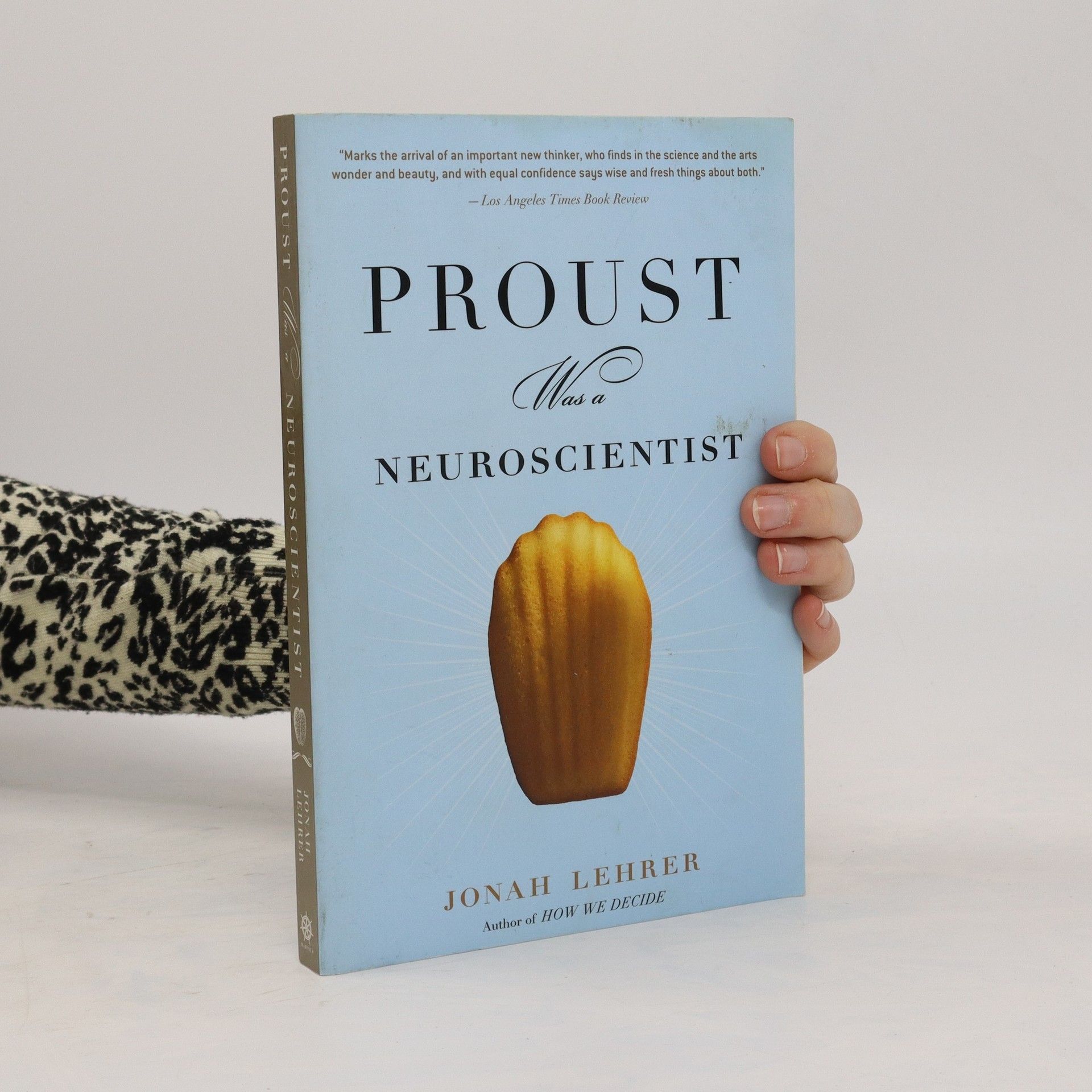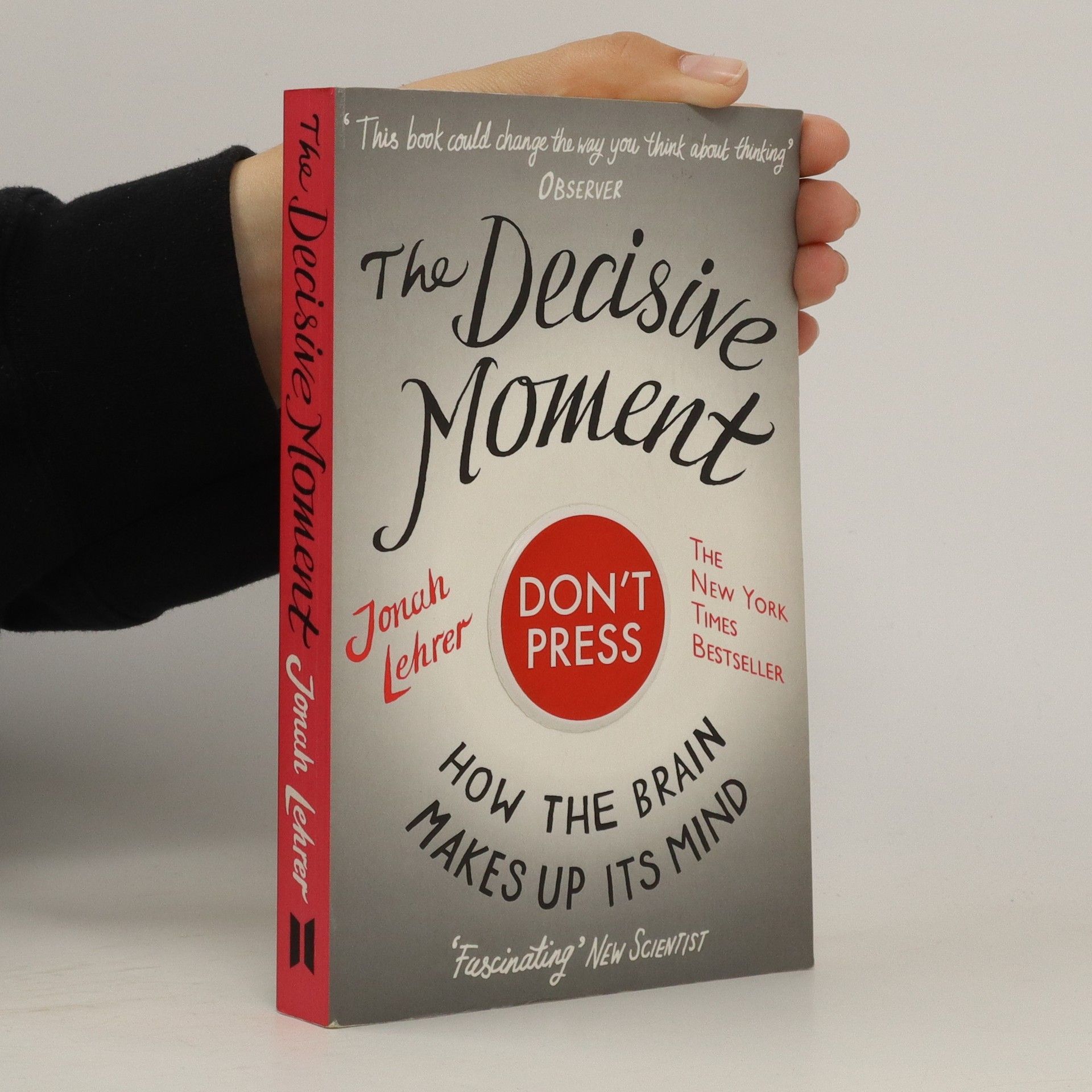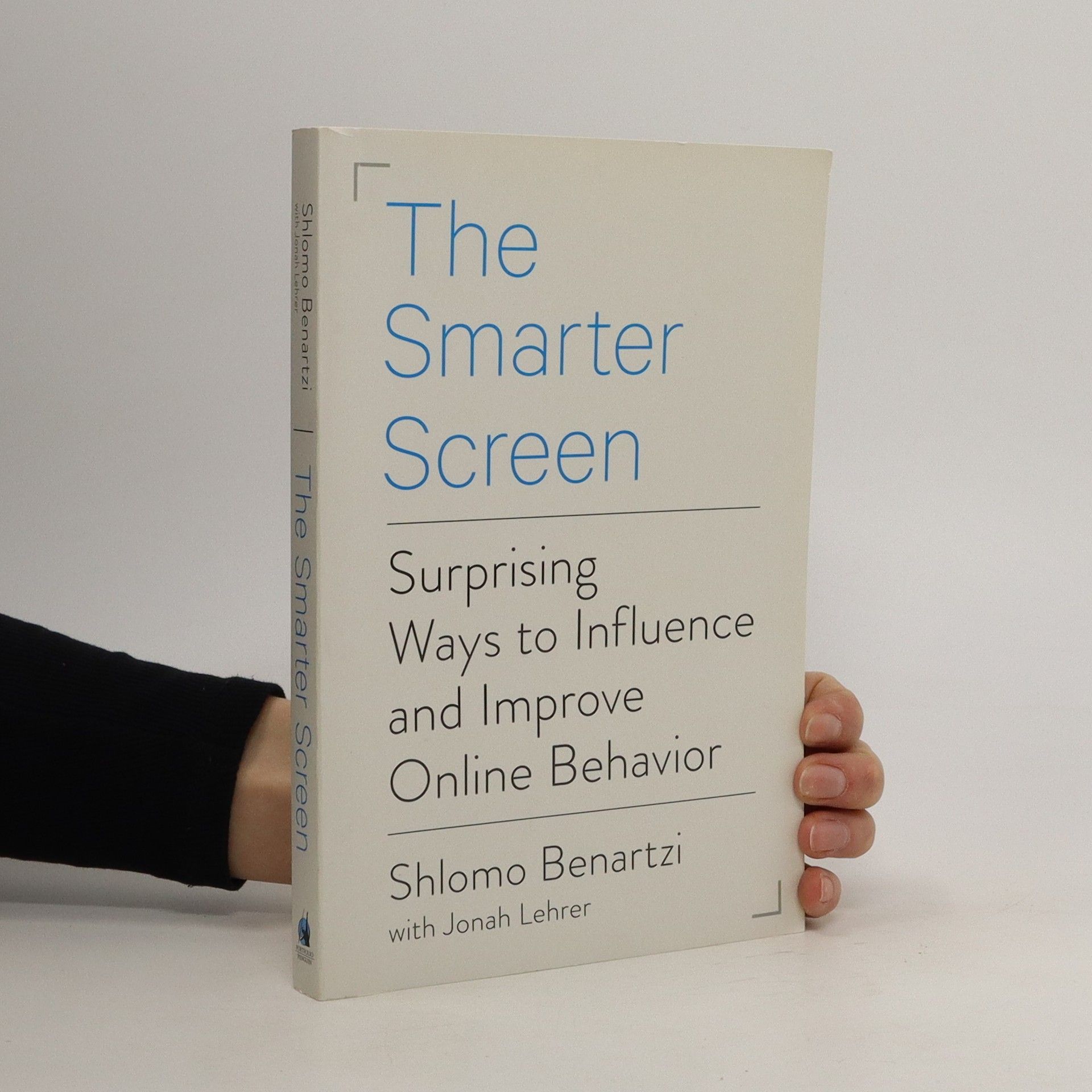"A leading behavioral economist shows how businesses can improve consumer thinking and decision-making on screens, "--NoveList.
Jonah Lehrer Livres







Mystery
- 256pages
- 9 heures de lecture
Drawing on the fields of psychology, neuroscience and anthropology, a New York Times best-selling author unlocks the secrets of mystery's allure, shedding new light on everything from the formulas of our favorite detective shows to the calculated risks of the stock market.
Since Plato, philosophers have described the decision-making process as either rational or emotional: we carefully deliberate or we 'blink' and go with our gut. But as scientists break open the mind's black box with the latest tools of neuroscience, they're discovering this is not how the mind works. Our best decisions are a finely tuned blend of both feeling and reason - and the precise mix depends on the situation. When buying a house, for example, it's best to let our unconscious mull over the many variables. But when we're picking stocks and shares, intuition often leads us astray. The trick is to determine when to lean on which part of the brain, and to do this, we need to think harder (and smarter) about how we think.
Proust was a neuroscientist
- 242pages
- 9 heures de lecture
"In this technology-driven age, it's tempting to believe that science can solve every mystery. After all, science has cured countless diseases and even sent humans into space. But as Jonah Lehrer argues in this sparkling debut, science is not the only path to knowledge. In fact, when it comes to understanding the brain, art got there first. Taking a group of artists - a painter, a poet, a chef, a composer, and a handful of novelists - Lehrer shows how each one discovered an essential truth about the mind that science is only now rediscovering. We learn, for example, how Proust first revealed the fallibility of memory; how George Eliot discovered the brain's malleability; how the French chef Escoffier discovered umami (the fifth taste); how Cézanne worked out the subtleties of vision; and how Gertrude Stein exposed the deep structure of language -- a full half-century before the work of Noam Chomsky and other linguists. It's the ultimate tale of art trumping science. More broadly, Lehrer shows that there is a cost to reducing everything to atoms and acronyms and genes. Measurement is not the same as understanding, and art knows this better than science does. An ingenious blend of biography, criticism, and first-rate science writing, Proust Was a Neuroscientist urges science and art to listen more closely to each other, for willing minds can combine the best of both, to brilliant effect."--Publisher's description.
The book showcases the remarkable hotel casino designs by renowned interior designer Roger Thomas, highlighting his ability to create breathtaking interiors within the gaming industry. It features a lavish presentation of his work, emphasizing the artistry and innovation that define his unique approach to interior design. Through stunning visuals and insightful commentary, readers will explore the transformative impact of Thomas's designs on the atmosphere and experience of luxury casinos.
IMAGINE! ist ein Führer durch die neue Wissenschaft der Kreativität. Jonah Lehrer räumt mit den Mythen von Musen, höheren Kräften, Genies und selbst von kreativen „Typen“ auf und zeigt, dass jeder Mensch ein kreatives Gehirn hat - er muss es nur zu nutzen verstehen. Kreativität ist eine Kombination bestimmter Denkvorgänge, deren effektivere Nutzung wir alle lernen können. Das Buch zeigt die Bedeutung von Kindlichkeit und produktiver Tagträumerei, von Frustration und Leere im Kopf, von Selbstvergessenheit und Loslassen für unsere Kreativität. Dann aber führt der Autor uns aus unseren eigenen Köpfen heraus und zeigt uns, wie wir unsere sozialen Umgebungen lebendiger, unsere Organisationen produktiver und unsere Schulen effektiver machen können. Die Fallbeispiele, die er anführt, reichen von Shakespeare bis Bob Dylan, von der Erfindung des Post-it bis zu Steve Jobs.